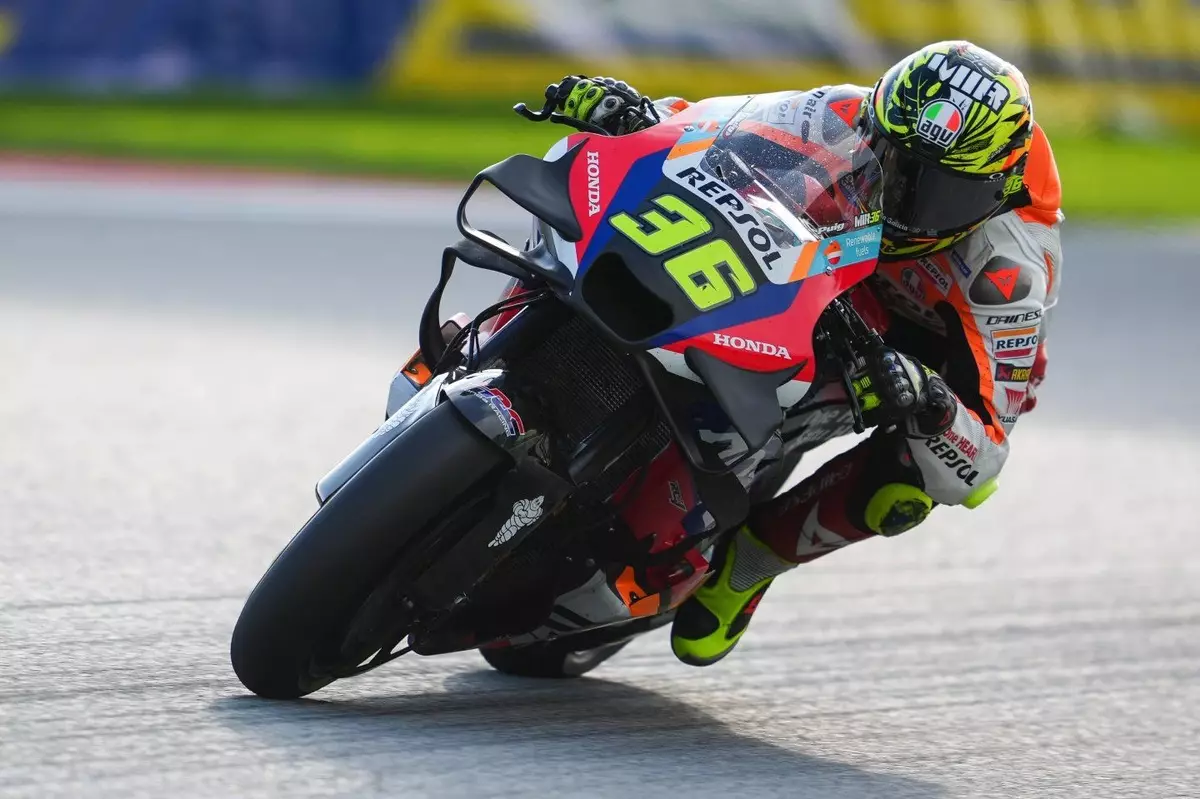The world of MotoGP is unforgiving; competitiveness and innovation are paramount. As Honda and Yamaha struggled in the 2023 season, the introduction of a revamped concession system aimed to provide these storied manufacturers with an opportunity to reclaim their positions in the hierarchy of motorcycle racing. Factory HRC rider Joan Mir, however, has expressed skepticism regarding the efficacy of these concessions in translating to improved performance on the track.
The modifications made to the concessions system in 2024 were designed to give Honda and Yamaha the flexibility to introduce new engineering developments and enhance their race bikes. For instance, Honda was granted several opportunities to test various engine configurations outside of the traditional race weekends, with Mir and teammate Luca Marini at the helm for these private tests. Despite these opportunities, Honda’s results were far from encouraging, with the manufacturer finishing at the very bottom of the standings, amassing only 75 points—less than half of its total from the previous season, where Marc Marquez was a key figure on the team.
Mir’s comments suggest a pressing concern: the intended benefits of the concession system have failed to materialize. He believes that without the concessions, Honda would likely find itself in a similar position. This enigmatic situation raises critical questions about the nature of innovation and experimentation in high-stakes racing environments. Mir pointed out the absence of noteworthy enhancements in their performance, implying that simply having access to more testing does not equate to tangible improvements in results.
One of the interesting aspects highlighted by Mir is the psychological and physical toll of an intensified testing regime for factory riders. The calendar has become increasingly congested, leaving little room for recovery or reflection. The primary assumption that more testing time equates to better performance is being scrutinized. Mir argues that the demanding schedule disrupts the psychological balance necessary for high-performing athletes. In essence, a relentless cycle of tests and races may be counterproductive.
This sentiment underscores an important element of motorsports: the mental dimension of racing is just as crucial as the physical aspects. While the testing team operates under the premise of amplifying development, if the riders lack the mental fortitude due to constant exertion, the potential benefits may be diminished. What remains clear is that Honda must strike a careful balance between testing involvement and ample downtime.
Recognizing that the current testing strategy has room for improvement, Honda has taken steps to reinforce its test team for the future. The integration of experienced riders, such as three-time Grand Prix winner Aleix Espargaro, indicates an understanding of the need for broader insights and varied perspectives on bike performance. Takaaki Nakagami’s shift to a testing role further emphasizes a growing commitment to utilizing their resources effectively.
Mir’s assertions about the inadequacies of the previous test team reflect a belief that progress hinges not solely on concessions but also on having the right personnel capable of executing the testing efficiently. This focus on quality over quantity in the testing process could potentially yield the improvements necessary for Honda to regain its competitive edge in MotoGP.
While the 2024 season brought to light the challenges faced by Honda, Mir remains cautiously optimistic about the adjustments made to both the testing team and the continued use of the concession system. He believes that the cumulative efforts and strategic shifts could usher in a new era of performance for Honda in the 2025 season.
The combination of lessons learned from past failures, restructured testing protocols, and enhanced development approaches may ultimately provide Honda with the tools needed to rise from its current struggles. As the MotoGP landscape continues to evolve, it will be critical for Honda to leverage both innovation and strategic thinking to transform their fortunes in the highly competitive world of motorcycle racing.


Leave a Reply